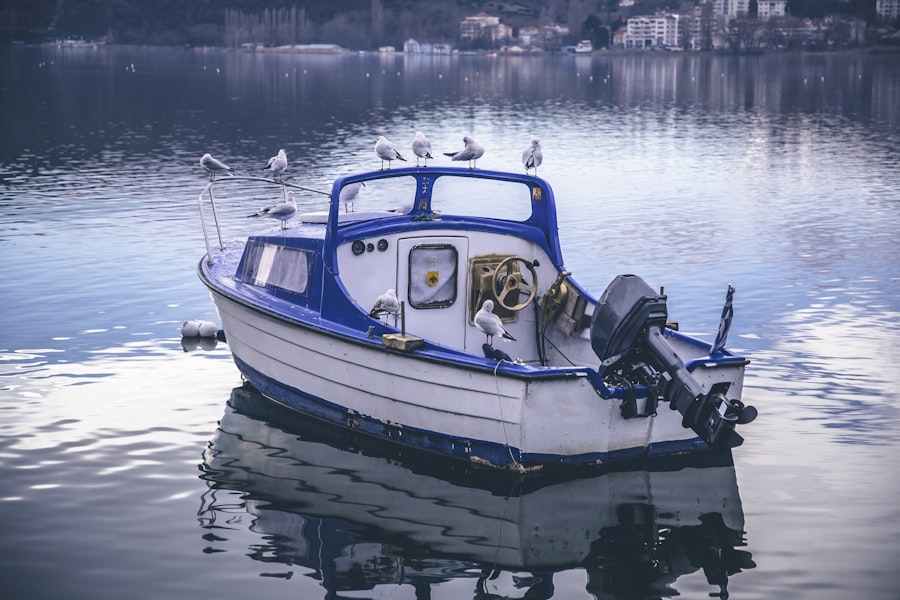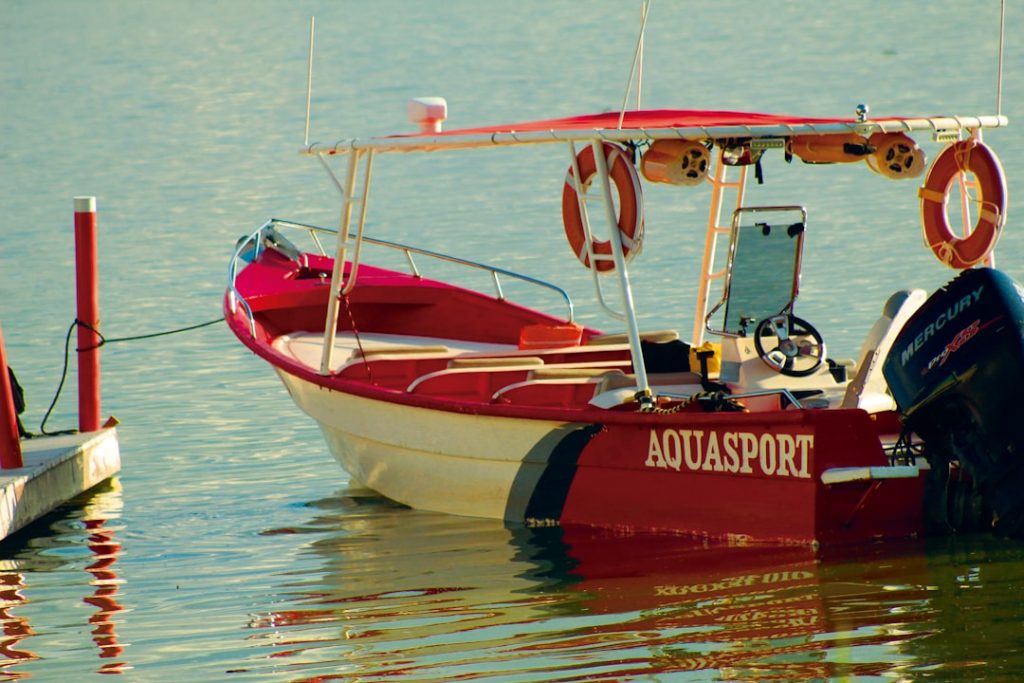Outboard motors are a crucial component of many recreational and commercial watercraft, providing the necessary propulsion for boats ranging from small fishing vessels to larger yachts. These engines are mounted externally on the transom of the boat, allowing for easy access and maintenance. The design of outboard motors has evolved significantly over the years, with advancements in technology leading to more efficient, powerful, and environmentally friendly options.
Typically, outboard motors are classified by their horsepower, which can range from as little as 2.5 HP for small dinghies to over 300 HP for high-performance boats. The basic structure of an outboard motor includes the engine, gearbox, and propeller. The engine can be either two-stroke or four-stroke, with each type offering distinct advantages and disadvantages.
Two-stroke engines are generally lighter and provide more power for their size, making them popular for smaller boats. However, they tend to be less fuel-efficient and produce more emissions compared to their four-stroke counterparts. Four-stroke engines, while heavier and more complex, are known for their fuel efficiency and lower emissions, making them a preferred choice for environmentally conscious boaters.
Understanding these fundamental differences is essential for anyone looking to purchase or operate an outboard motor.
Key Takeaways
- Outboard motors vary in size, power, and type, essential to understand before purchasing.
- Key factors include motor horsepower, fuel efficiency, and compatibility with your boat.
- Local dealerships and online marketplaces are common places to find outboard motors for sale nearby.
- Comparing brands and reading reviews helps in selecting a reliable and suitable motor.
- Regular maintenance extends motor life, and buying used motors can offer cost savings with proper care.
Factors to Consider When Buying an Outboard Motor
When considering the purchase of an outboard motor, several factors come into play that can significantly influence your decision. One of the primary considerations is the intended use of the boat. For instance, if you plan to use your boat primarily for leisurely cruising on calm waters, a smaller, less powerful motor may suffice.
Conversely, if you intend to navigate rougher waters or require higher speeds for activities such as water skiing or fishing in deeper waters, a more powerful motor will be necessary. Another critical factor is the weight and size of your boat. The outboard motor must be appropriately matched to the boat’s specifications to ensure optimal performance and safety.
Manufacturers often provide guidelines regarding the maximum horsepower that a particular boat can handle. Exceeding this limit can lead to instability and handling issues. Additionally, consider the weight of the motor itself; a heavier motor may affect the boat’s balance and performance.
Therefore, it is essential to assess both the boat’s capacity and your specific needs before making a purchase.
Where to Find Outboard Motors for Sale Near Me

Finding outboard motors for sale can be accomplished through various channels, each offering unique advantages. Local marine dealerships are often the most reliable source for new outboard motors. These dealerships typically carry a range of brands and models, allowing you to compare options side by side.
Additionally, purchasing from a dealership often comes with warranties and after-sales support, which can be invaluable for first-time buyers or those unfamiliar with outboard motors. Online marketplaces have also become increasingly popular for buying outboard motors. Websites such as eBay, Craigslist, and specialized boating forums allow users to browse listings from private sellers and dealers alike.
While this option can yield competitive prices, it is essential to exercise caution when purchasing online. Always verify the seller’s credibility and inspect the motor in person if possible. Furthermore, consider joining local boating clubs or forums where members often share information about available motors for sale within the community.
Tips for Choosing the Right Outboard Motor
| Tip | Description | Metric/Consideration |
|---|---|---|
| Determine Boat Size and Weight | Choose a motor with enough power to efficiently propel your boat. | Horsepower (HP) rating suitable for boat size (e.g., 2-10 HP for small boats, 50+ HP for larger boats) |
| Consider Motor Type | Decide between 2-stroke and 4-stroke engines based on performance and maintenance. | 2-stroke: lighter, more power; 4-stroke: quieter, more fuel-efficient |
| Fuel Efficiency | Evaluate fuel consumption to reduce operating costs and environmental impact. | Gallons per hour (GPH) or liters per hour (LPH) at cruising speed |
| Weight of Motor | Ensure the motor weight is compatible with your boat’s transom capacity. | Motor weight in pounds or kilograms |
| Engine Reliability and Maintenance | Choose a motor known for durability and ease of maintenance. | Warranty period (years), recommended service intervals (hours) |
| Noise Level | Consider noise output for comfort and local regulations. | Decibels (dB) at cruising speed |
| Price Range | Set a budget and compare motors within that range. | Cost range (excluding currency symbols) |
| Additional Features | Look for features like electric start, power tilt, or remote control. | Availability of features (Yes/No) |
Selecting the right outboard motor involves more than just choosing a model based on horsepower; it requires careful consideration of various factors that align with your boating lifestyle. One important tip is to prioritize fuel efficiency. As fuel prices fluctuate, having a motor that consumes less fuel can lead to significant savings over time.
Look for models that feature advanced technology designed to optimize fuel consumption without sacrificing performance. Another critical aspect is noise levels. Some outboard motors operate quietly, which can enhance the overall boating experience, especially during fishing trips or leisurely outings.
If noise is a concern for you or your passengers, consider models that are specifically designed for quieter operation. Additionally, think about ease of use; features such as electric start systems and user-friendly controls can make a significant difference in your overall experience on the water.
Comparing Different Outboard Motor Brands
The market is filled with various outboard motor brands, each offering unique features and benefits. Yamaha is one of the most recognized names in the industry, known for its reliability and performance across a wide range of models. Yamaha outboards often come equipped with advanced technology such as digital electronic controls and fuel management systems that enhance efficiency and ease of use.
Mercury is another leading brand that has built a reputation for innovation and performance. Their motors are known for their robust construction and powerful output, making them a favorite among serious anglers and recreational boaters alike. Additionally, Mercury offers a range of options from portable motors suitable for small boats to high-performance engines designed for larger vessels.
Honda is also worth mentioning due to its commitment to environmental sustainability and fuel efficiency. Honda outboards are designed with advanced four-stroke technology that minimizes emissions while maximizing power output. This focus on eco-friendliness appeals to many modern boaters who prioritize environmental responsibility in their purchasing decisions.
Maintenance and Care for Outboard Motors

Proper maintenance is essential for ensuring the longevity and performance of your outboard motor. Regular checks should include inspecting the oil levels, fuel system, and cooling system to prevent any potential issues before they escalate into costly repairs. It is advisable to change the oil at least once a year or after every 100 hours of operation, depending on usage patterns.
Additionally, replacing the fuel filter regularly helps maintain optimal fuel flow and engine performance. Cleaning the motor after each use is also crucial, especially if you frequently operate in saltwater environments where corrosion can be a significant concern. Rinsing the motor with fresh water helps remove salt deposits that can lead to rust and other damage over time.
Furthermore, consider using a fuel stabilizer during periods of inactivity to prevent fuel degradation and ensure smooth operation when you return to boating.
Benefits of Buying a Used Outboard Motor
Purchasing a used outboard motor can offer several advantages over buying new ones, particularly for budget-conscious boaters or those just starting in the boating world. One of the most significant benefits is cost savings; used motors are typically priced significantly lower than their new counterparts while still providing reliable performance if properly maintained. This affordability allows buyers to allocate funds toward other essential boating equipment or upgrades.
Another advantage of buying used is the opportunity to find models that may no longer be in production but still offer excellent performance characteristics. Vintage outboards can sometimes provide unique features or designs that appeal to collectors or enthusiasts looking for something different from modern offerings. However, it is crucial to conduct thorough research and inspections when considering used motors to ensure they are in good working condition.
Finding Outboard Motor Dealers and Sellers Near Me
Locating reputable outboard motor dealers and sellers in your area can significantly enhance your purchasing experience. Start by searching online directories or using search engines with specific keywords related to your location and desired motor type. Many dealers have websites showcasing their inventory, making it easier to compare options before visiting in person.
Local boat shows or marine expos are excellent venues for discovering dealers and sellers who specialize in outboard motors. These events often feature various brands and models, allowing you to see them up close and even test them in some cases. Additionally, networking within local boating communities can provide valuable recommendations on trustworthy dealers who have earned positive reputations among fellow boaters.
In conclusion, understanding outboard motors involves recognizing their importance in boating while considering various factors when purchasing one. From evaluating your needs based on intended use to exploring both new and used options available through local dealers or online platforms, each step plays a vital role in ensuring you make an informed decision that enhances your boating experience.


